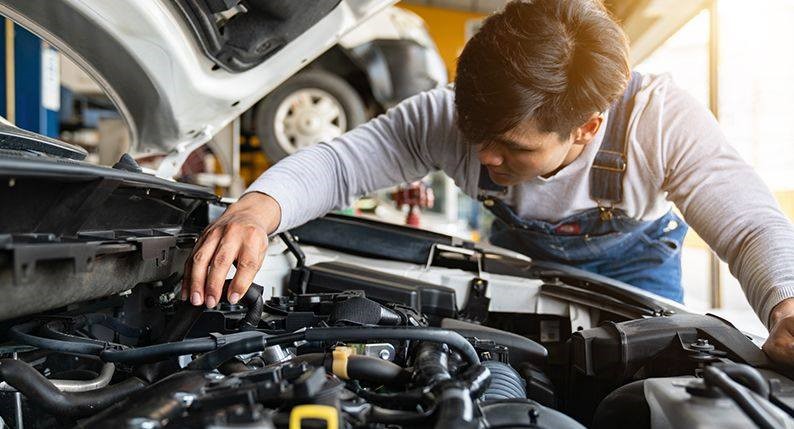All Categories
Featured
Your cars and truck is an essential component of your every day life, and taking good care of it makes certain that it offers you dependably for several years to come. While modern lorries are developed to be long lasting, overlooking appropriate upkeep can lead to unneeded break downs and expensive fixings. Right here's just how you can keep your automobile running longer and in peak condition.
- Abide By Routine Maintenance. The foundation of a lasting vehicle is normal upkeep. Follow your producer's recommended maintenance schedule, which can typically be discovered in your auto's owner's handbook. Regular tasks like oil adjustments, tire turnings, and brake checks avoid deterioration and keep your vehicle performing optimally.
Disregarding oil adjustments is among the quickest ways to damage your engine. Clean oil makes certain appropriate lubrication and prevents getting too hot. Depending on your automobile and driving habits, oil changes are normally needed every 3,000 to 5,000 miles or as specified by the producer.
- Examine and Restore Fluids. Your auto depends on a number of fluids to run smoothly. These include engine oil, transmission fluid, coolant, brake fluid, and power guiding fluid. Low or dirty fluids can result in engine overheating, slipping equipments, and brake failing.
Make it a practice to examine liquid levels routinely. If you discover a substantial decrease in fluid levels, it might indicate a leakage that needs prompt interest. Keeping fluids clean and at the best levels guarantees your auto runs efficiently and avoids pricey repair services.
- Maintain an Eye on Your Tires. Tire upkeep is crucial for both safety and performance. Incorrectly inflated tires can reduce fuel efficiency, create irregular wear, and increase the danger of blowouts. Check your tire stress regular monthly and guarantee it matches the manufacturer's referrals.
Revolving your tires every 5,000 to 7,500 miles advertises even put on and extends their lifespan. In addition, examine your tires for any kind of indicators of damage, such as cuts, protrudes, or reduced step deepness, and replace them when required.
- Change Worn Parts on schedule. Ignoring worn-out parts can bring about bigger issues later on. For instance, falling short to change a used timing belt can result in engine failing. Worn brake pads can damage blades, leading to expensive repairs.
Be positive concerning replacing parts such as trigger plugs, filters, and belts based on the manufacturer's guidelines. Using high-quality substitute components ensures much better efficiency and long life.
- Practice Gentle Driving. The method you drive dramatically impacts the life-span of your automobile. Aggressive driving habits, such as fast velocity, abrupt stopping, and difficult cornering, put additional anxiety on the engine, brakes, and tires.
Instead, embrace smooth driving methods. Increase gradually, maintain a constant rate, and brake delicately whenever possible. This reduces damage on your auto's parts and enhances fuel effectiveness.

- Secure Your Cars and truck's Outside. Keeping your auto clean isn't simply regarding appearances-- it has to do with protecting against damage. Dust, roadway salt, and gunk can trigger corrosion and rust, specifically in the undercarriage. Normal washing, especially throughout winter or after driving on salted roadways, is vital.
Waxing your car every few months supplies a protective layer against environmental damage. Furthermore, park your auto in a garage or use an automobile cover to shield it from extreme weather and UV rays, which can fade the paint and damage the inside.
- Don't Neglect Warning Indicators. Dashboard warning lights are your car's means of telling you something requires attention. Whether it's the check engine light, low oil stress, or tire pressure caution, resolving these alerts promptly can stop small issues from ending up being significant repair work.
If you observe uncommon noises, resonances, or modifications in your automobile's performance, do not ignore them. A professional auto mechanic can diagnose and deal with the issue before it rises.
- Shop Your Auto Properly. If you're not utilizing your automobile for a prolonged period, appropriate storage space is essential. Keep your automobile in a trendy, dry location to protect it from weather condition damage. Make use of a battery tender to keep the battery fee and include a fuel stabilizer to avoid the gas from degrading.

Beginning the auto occasionally or taking it for a brief drive can keep all systems in functioning order and prevent parts from taking up.
Verdict: Consistency Is Key. Maintaining your cars and truck running longer doesn't call for challenging procedures-- simply consistency and attention to detail. Treat your automobile with care, and it will compensate you with integrity, better performance, and years of reliable service.
Latest Posts
The Value of Expert Rain Gutter Setup and Maintenance
Top Tips for Keeping Your Wood Fencing in Great Shape
Exactly How to Expand the Life of Your Plastic Fence?
